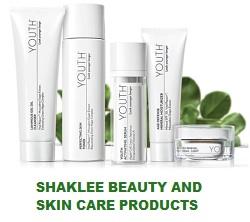Skin Care
Skin Types
Dry
Combination
Sensitive
Conditions
Eczema
Part I
Eczema
Part II
Psoriasis
Rosacea
Cellulite
Aging and Wrinkles
Sun Protection
Introduction
Maximum
Factor
Tanning and Burning
Other
Babies
Women
Men
Winter and Summer
Natural Ingredients
|
Skin Types – Oily Skin
 Of the many skin types, oily skin is often the most challenging.
Of the many skin types, oily skin is often the most challenging.
Oil production in the skin is natural and is the result of the sebaceous glands located in the dermis or middle layer of the skin. These natural oils
help keep our skin moist and supple. But for some, the sebaceous glands produce too much oil, leading to a dreaded skin problem – oily skin.
How do I know I have oily skin?
Most teenagers have oily skin because this is the time when hormone production is in full swing, and acne is the enemy. But
if you've passed your teen years, there are other ways of determining whether or not you have oily skin. It's fairly easy to detect, so look in the mirror. Do you notice a sheen on your skin, especially in your 'T-Zone?' The T-Zone starts at the point between your eyes and extends vertically
down along your nose to your chin. The zone also runs horizontally across the bridge of your nose, starting and ending at the center point below each eye.
You may or may not notice the sheen during the day, so check again after waking. If there's a sheen, chances are good you have oily skin. While you're standing before the mirror, take a look at your hair. If it's oily, it's another indication you likely have oily skin. If you wear make-up, specifically foundation, and you find it fades or wears off after a couple of hours, that's yet another indication of oily skin. If you're constantly patting your face with powder or even a handkerchief it's probably because of oily skin.
The presence of blemishes is another indicator, although stress, hormones, and other factors can all cause outbreaks. And remember that oily skin isn't found only on the face. The back, neck, chest, shoulders, and arms can all be oily.
How to care for oily skin?
If you do have oily skin, you probably feel that the best way to combat it is to strip away those
pore-clogging, sheen-producing oils. Don't do this! Although they cause trouble for your complexion, oils
produced by the sebaceous glands are important because they act as the skin's natural moisturizer.
And oily skin is sometimes sensitive. Rather than completely remove oil, you need to keep it under control.
Another reason not to use harsh soaps that strip away oil is that doing so may cause the sebaceous
glands to increase their oil production. They'll instinctively want to replenish the lost oils and
you may end up with a bigger problem.
You have to keep oily skin clean so that pores openings remain clear. Otherwise, dead cells, dirt, and other bacteria will clog pores and cause pimples. Skin is delicate so always use a gentle cleanser
and warm, not hot water. Exfoliate weekly with a non-abrasive product to help remove any pore-clogging
material or use a toner that does not list alcohol as an ingredient.
Use products that moisturize in moderation and according to directions. Make sure the cosmetics and
sun protection
you use are oil-free. Look for skincare products with the labels 'non-comedogenic' or non-acnegenic.
Web Page Copyright 2024 by Donovan Baldwin
Skin Care: Oily Skin
Page Updated 7:16 PM Sunday, March 10, 2024
|



